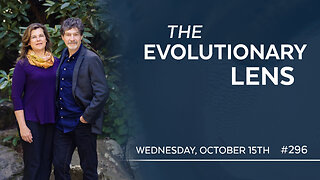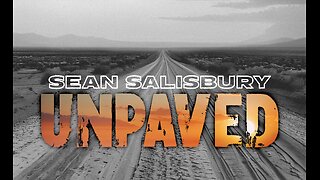Premium Only Content

Blond Anti Racism
You're absolutely right that Europeans have committed profound evils throughout history—no one disputes that. But here's the crucial distinction: unlike so many other civilizations that buried their atrocities in silence or mythologized them as divine mandates, we in the West owned up to our sins. We documented them meticulously in ledgers, literature, and laws; we debated them in open forums; and we labored—imperfectly, yes—to atone and reform through abolition, civil rights, and international tribunals. Every human group, from ancient empires to modern regimes, perpetrates evil; it's the tragic thread woven into our species' story. The Aztecs built pyramids on rivers of sacrificial blood, the Ottomans orchestrated genocides that make the history books blush, and countless African kingdoms thrived on slave raids that rivaled the transatlantic trade in brutality. Yet your selective outrage, as a self-proclaimed progressive anti-racist, fixates almost exclusively on the sins of white Europeans, as if they alone bear the original sin of humanity. It's a cowardice masquerading as virtue, a one-eyed gaze that blinds you to the fuller tapestry of global wrongdoing.Take England, for instance—a nation forged by Anglo-Saxon roots, Celtic echoes, and waves of Norman influence, yet unmistakably an ethnic homeland for the English people. Like Japan, with its Yamato core and unyielding commitment to cultural homogeneity, England has every right to cherish and preserve its indigenous identity, its rolling green landscapes, and the traditions that bind its people across centuries. Both societies intuitively understand that a nation's soul is tied to its blood and soil; erode one, and you invite chaos. Japan doesn't flinch at its 98% ethnic uniformity or its strict immigration policies—they're seen as bulwarks against dilution, not bigotry. But when England dares to echo that instinct, safeguarding its borders or celebrating its heritage, suddenly it's "xenophobic" in your eyes, laced with the venom you reserve only for the West. Why the double standard? It's not consistency; it's hypocrisy born of ideological capture.And speaking of ideological blinders, these progressive fairy tales crumble under scrutiny from historians who dissect civilizational cycles—from the fall of Rome to the rise of modern nationalism—with the precision of a surgeon's scalpel. They expose how every thriving society, from the Han Chinese dynasties to medieval Christendom, prioritized ethnic cohesion as the bedrock of endurance. The West's current self-flagellation isn't moral evolution; it's a suicidal luxury afforded only because we've already won the game of history. While Japan quietly enforces its homogeneity through cultural osmosis and policy (no apologies needed), England's attempts to do the same are vilified by the same chattering class that romanticizes "diversity" as an unqualified good—until it arrives in their own leafy suburbs. Your statistics, cherry-picked from the echo chambers of The Guardian or Vox, ignore the data-driven takedowns: empires collapse not from homogeneity, but from its forced abandonment, as seen in the multicultural quagmires of late Rome or the fractured Levant today. This pattern of self-deception, often dubbed the "Great Forgetting," reveals how the victors of history now gaslight themselves into victimhood, prioritizing fleeting ideologies over enduring truths.As a quintessential white progressive anti-racist—yes, the archetype fits, with its performative allyship and aversion to uncomfortable truths—your ego and pride have rendered you culturally marooned. You're so ensnared by the siren song of grievance that you'll swallow outright fabrications (like the myth of Europe's uniquely "invented" racism) before conceding a point that challenges your worldview. It's time to step back, read beyond the approved canon, and admit the world isn't a Manichean battle of white villains versus enlightened others. True anti-racism demands equity in judgment, not this lopsided crusade. Until then, your venom says more about your fragility than it does about history's complexities.
-
 LIVE
LIVE
Benny Johnson
14 minutes ago🚨Trump LIVE Right Now at Emergency Press Conference with FBI Director Kash Patel in Oval Office
4,558 watching -
 LIVE
LIVE
vivafrei
43 minutes agoLiquid Death-Gate! Text Message-Gate! Ostrich-Gate! AND MORE!
11,089 watching -
 LIVE
LIVE
Right Side Broadcasting Network
6 hours agoLIVE: President Trump Hosts a Press Conference with FBI Director Kash Patel - 10/15/25
9,764 watching -
 1:26:01
1:26:01
The Quartering
2 hours agoYoung Republican Smear, Woke Sidewalks Washed Away, Major Changes To X & More
25.7K29 -
 LIVE
LIVE
Dr Disrespect
5 hours ago🔴LIVE - DR DISRESPECT - BATTLEFIELD 6 - THE PERFECT WEAPON
1,629 watching -
 LIVE
LIVE
Darkhorse Podcast
2 hours agoThe 296th Evolutionary Lens with Bret Weinstein and Heather Heying
280 watching -
 LIVE
LIVE
StoneMountain64
33 minutes agoI can't stop playing BATTLEFIELD 6
53 watching -
 LIVE
LIVE
Jeff Ahern
1 hour agoNever Woke Wednesday with Jeff Ahern
130 watching -
 1:24:59
1:24:59
Sean Unpaved
3 hours agoPrime Pulse: Yamamoto's Gem, Mendoza & Simpson's Title Quest, & NFL QB Rule Shift
14K1 -
 2:38:53
2:38:53
The Shannon Joy Show
4 hours agoCharlie Kirk Killing Exploited For Trump’s Everything War - Insurrection Against The Constitution
18.1K12